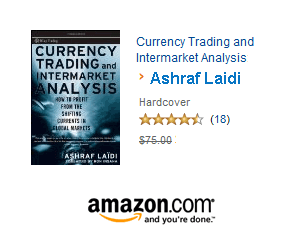Forum > View Topic
by Ashraf Laidi
Posted: Feb 22, 2010 5:00
Comments: 1558
Posted: Feb 22, 2010 5:00
Comments: 1558
Forum Topic:
JPY
Discuss JPY





http://s1-05.twitpicproxy.com/photos/full/534098979.png
look to china..
"Large offer shows at Y82.40" another trader says..
current support stands @ 79.85 until 81.50 is taken out....
gl/gt
By Vicki Schmelzer
NEW YORK (MNI) - In 2011, it was clear that the dollar was winning the "ugly contest" in terms of currencies that global investors were buying in spite of grave misgivings about overall fundamentals.
Now in the new year, despite expectations of additional monetary policy easing by the European Central Bank and uncertainty about Greece and other peripherals, the euro has clawed its way higher, making the dollar the reluctant wall flower.
Will the euro rule the roost in 2012, or will the dollar make a comeback?
And if the dollar does bounce back, will this be driven by renewed safe-haven demand, or by U.S. economic outperformance?
Current thinking is that if risk appetite picks up going forward, whether by eurozone crisis fears being allayed or improved global data, the euro may be dragged higher by default, as long side-lined investors finally do get off the fence.
In the case of Japan, what would likely get domestic investors moving is a marked move higher in dollar-yen and yield breakout in U.S. Treasuries.
"As long as global bond yields remain near record lows, yield-seeking Japanese investors have little choice but to keep funds at home, opting for low yields and to reduce the foreign exchange risk," said Ashraf Laidi, chief global strategist at Cityindex in London.
When these investors do "venture abroad," they typically keep their FX risk unhedged, which tends to weigh on the yen, he reminded.
So far, the correlation between global government bond yields and yen crosses (dollar-yen and U.S. 10-year Treasury yields in particular) has remained positive (over 70%).
More recently, weak Japanese growth and the first trade deficit in 32 years has Japanese investors looking abroad, Laidi said.
In January, net Japanese foreign purchases of overseas bonds rose to Y2.7 trillion, "the highest level since September and the third highest in three years," Laidi said.
For stepped-up Japanese outflows to be seen, two key technical levels will need to break decisively.
Dollar-yen will need to vault its 50-week moving average at Y78.75 and the 10-year U.S. Treasury yield will need to break out of a 1.8%-2.2% consolidation range and test its own 50-week moving average at 2.50%, he said.
"Continued improvement in U.S. economic data (manufacturing and corporate profits) must be complimented by consumer spending and capex as well as a pickup in the BRICs in order for bond traders to allow higher yields in the face of the Fed's Operation Twist aimed at suppressing long term yields," Laidi said.
Typically, Japanese investor outflows pick up after the country's fiscal year-end March 31, so traders will watch for any larger outflows seen in April.
In terms of driving factors for FX, world central bank reserve diversification may play a larger role in 2012 than in recent years.
The latest International Monetary Fund Currency Composition of Official Foreign Exchange Reserves or COFER data, released December 31, showed that as per Q3, of the total allocated world central bank reserves of $5.446 trillion, 61.7% were in dollars, 25.7% in euros, and 4.8% were in "other currencies" that were not yen, sterling or Swiss franc.
This compared to Q4 2010 holdings of $5.123 trillion, where 61.7% were in dollars, 26.0% in euros, and 4.5% were in "other currencies."
With the dollar gaining, rather than falling in the second half of 2011, global central banks had a respite, and did not need to intervene as aggressively -- or in many cases at all -- to prevent their currencies from appreciating excessively.
In the past six months, a few central banks were even seen selling dollars and buying their local currency, to prevent undue FX weakness instead of strength.
With reserve inflows curtailed in the second half of 2011, "reserve managers could basically sit on their hands and not make major decisions with respect to currency diversification," said Steve Englander, global head of G-10 FX strategy at CitiFX.
For the first time in many months, reserve managers are starting to see foreign inflows, he said.
"Based on our gauge of reserve accumulation by active early reporting reserve managers, January accumulation was positive for the first time since October and at its highest pace since July," Englander said.
With the market leaning toward "risk-on" positioning and global investors "probably still underweight emerging markets," these reserve managers will need to "decide what to do with the dollars (and possibly euros) that they are accumulating," he said.
"The old 'sell USD, buy EUR' diversification trade is not as appealing as it used to be," Englander said.
And global investor inflows as a whole may not be as dollar driven as in the past, with typical "euro" investors looking more favorably inst